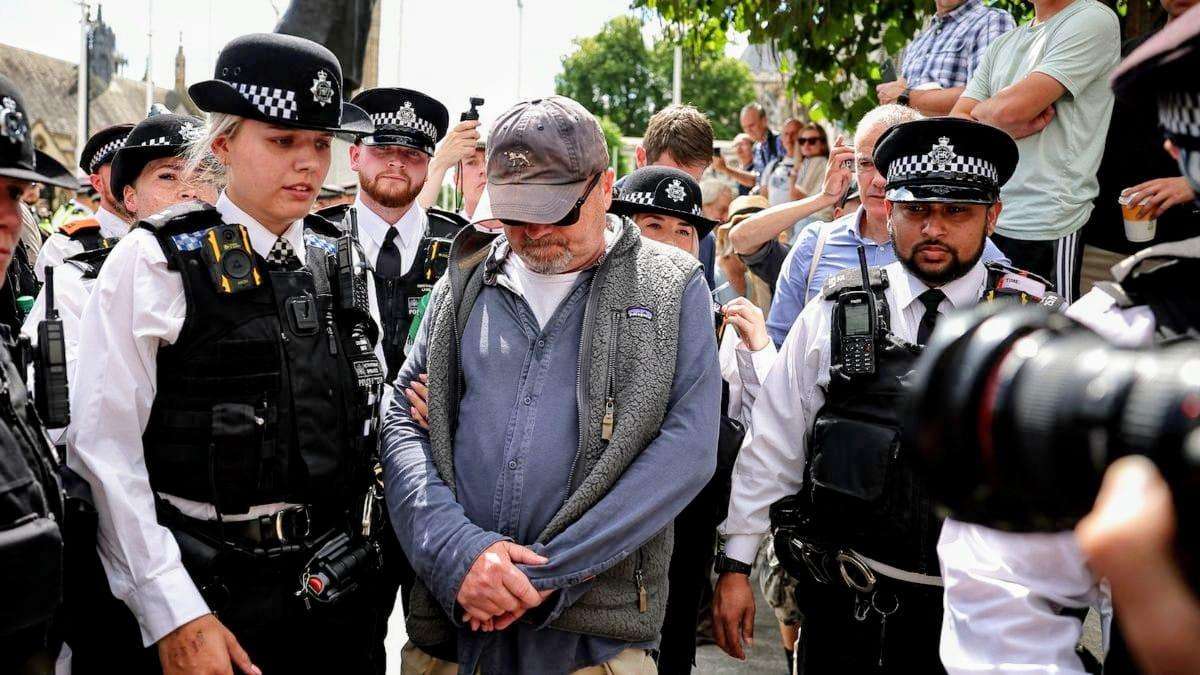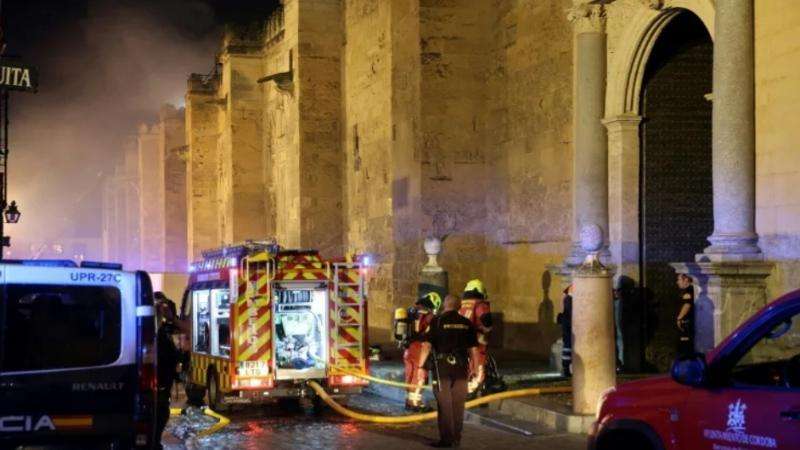A major disaster was narrowly averted in the Spanish city of Cordoba on Friday night after a fire broke out inside the historic Mosque-Cathedral, a UNESCO World Heritage site and one of the country's most cherished landmarks. Quick and decisive action by the city's fire department saved the centuries-old monument from what could have been a catastrophic blaze.
Videos widely shared on social media showed flames and thick smoke pouring from the iconic building around 9:00 PM local time, sparking fears of a tragedy reminiscent of the 2019 fire at Notre Dame Cathedral in Paris. However, Cordoba Mayor Jose María Bellido quickly reassured the public. “The monument is saved,” he announced on Cadena television. “There will be no spread, it will not be a catastrophe.”
The mayor later confirmed on X (formerly Twitter) that the fire was fully extinguished and credited the "rapid and magnificent intervention" of the firefighters. The cause of the fire has been identified as a mechanical sweeping machine that caught fire in one of the building's chapels, which is typically used for storing maintenance equipment. This was an unfortunate accident, and not an act of arson. Firefighters and local police remained on site overnight to ensure there was no risk of reignition.
The Mosque-Cathedral is a unique architectural masterpiece, symbolizing the complex history of Spain. It was originally built as a mosque between the 8th and 10th centuries by the Muslim ruler Abd ar-Rahman, on the site of an earlier church. After the Christian reconquest of Spain in the 13th century, it was converted into a cathedral, with various architectural additions made over the following centuries. It draws approximately two million visitors annually.
In a separate development that highlights ongoing cultural and religious tensions in Spain, a local authority in the southeastern town of Jumilla has sparked national and international outcry by implementing a planned ban on religious gatherings in public sports centers. The measure, passed by the conservative local government, is specifically aimed at preventing the town's Muslim community from using these facilities for Eid prayers.
The ban, which was first proposed by the far-right Vox party and then amended and approved by the center-right Popular Party, prohibits the use of municipal sports facilities for "religious, cultural or social activities alien to our identity" unless organized by the local authority. This has been widely condemned as "institutionalized Islamophobia" by prominent Islamic associations and criticized by Spain's Migration Minister, Elma Saiz, as "shameful."
This move in Jumilla stands in stark contrast to the harmonious coexistence celebrated in Cordoba's historic landmark and has become a flashpoint in Spain's national conversation about immigration and multiculturalism. While the Cordoba fire was a random accident that united a city in fear for its heritage, the Eid prayer ban is a deliberate policy decision that has divided a community and drawn the attention of the national government.







.svg)

_2.jpg)